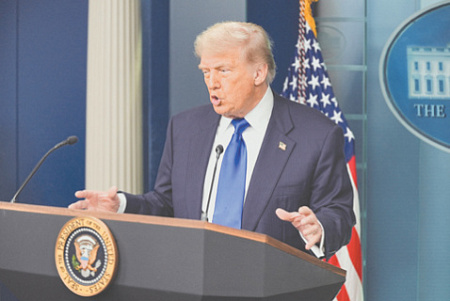
U.S. Special Envoy Steve Witkoff is expected to engage in talks with Iranian officials in the coming days, presenting a high-stakes proposal: a complete halt to Iran’s uranium enrichment in exchange for the lifting of punishing American sanctions. This diplomatic push, initiated by President Donald Trump, follows a recent flare-up that saw U.S. and Israeli strikes on Iranian nuclear sites. While President Trump has proclaimed the Iranian nuclear program “destroyed,” international watchdogs sharply disagree, creating a tense backdrop for the potential negotiations.
A fragile ceasefire announced by Trump is currently holding, but an atmosphere of profound uncertainty remains. The true extent of the damage to Iran’s nuclear infrastructure is a matter of intense dispute. The White House insists on total destruction, while Israeli officials offer a more cautious assessment of a “significantly diminished” capability. In stark contrast, the International Atomic Energy Agency (IAEA) warns that Iran could rebuild its centrifuge cascades within a few months. IAEA Director General Rafael Grossi delivered this assessment despite his inspectors being barred from the country and him personally facing death threats from a conservative Iranian newspaper.
As he champions a return to indirect talks, President Trump has vehemently denied reports that the U.S. and its Gulf allies were offering Iran billions in economic compensation. However, the American leader has not specified what incentives, other than sanctions relief, he would use to secure a deal. Simultaneously, Trump has consolidated his power at home, receiving a de facto green light from the U.S. Congress for potential future military action. Legislative efforts in both the House and Senate to restrict the president’s authority to attack Iran without congressional approval have failed, leaving the threat of force as a key element of the U.S. negotiating posture.
The regional response to the diplomatic overture has been mixed. Israel appears hesitant to re-engage in a wider war, focusing instead on assessing the damage from Iranian missile strikes and its ongoing military operations in Gaza. Iran, after initially appearing to welcome a face-saving end to the hostilities, has since reverted to a more defiant stance. Iranian Foreign Minister Abbas Araghchi declared that any progress depends on a change in tone from Washington, demanding that President Trump show “respect” for Supreme Leader Ayatollah Khamenei. This condition is a direct rebuke to Trump’s recent social media posts attacking the Iranian leadership, highlighting the deep-seated animosity that complicates any path toward a lasting agreement.
